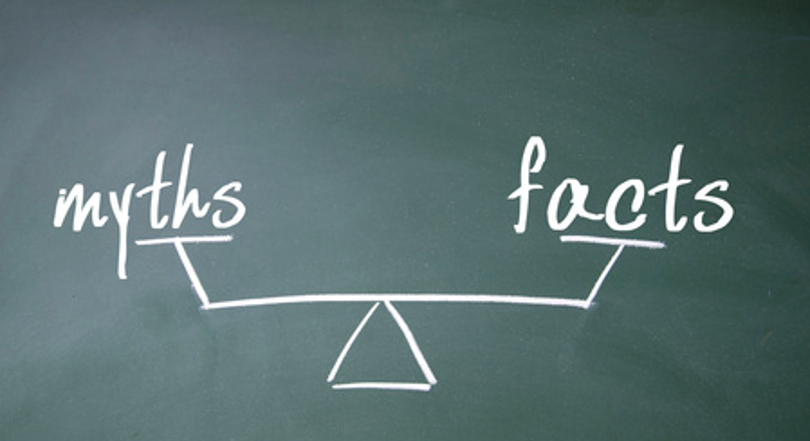In today’s time, information is everywhere and everyone seems to have strong and better opinions. Instead of relying on facts, myths and misconceptions many times rule.
Now when it comes to sales training or sales effectiveness programs, we hear many misconceptions organizations, sales leaders hold.
This is also prevalent among sales professionals but our experience shows many sales professionals are keen to get trained, but the organization holds on to that due to some of the misconceptions!
As a sales leader or L&D manager, it is important to be informed about what is a fact and what is a misconception to avoid all sorts of confusion.
We cover in this article the 9 most top myths and misconceptions about sales training,
Sales Training Doesn’t work
We actually hear this one a lot. Some leaders have had a bad experience with training, or they just have the idea that training doesn’t have an impact.
While there isn’t a great deal of published research on the topic for each industry, research and our own interventions across 20+ different organizations have shown that training helps sales professionals become more skilled and helps reach their quotas faster.
In addition, we’ve all met salespeople who were clearly well-trained and those who weren’t. Which are you more likely to hire or even buy from?
I don’t need to be involved
Believe it or not, we hear from some VPs and managers who tell us to train their people, but don’t think they need to be involved.
If you think you can just send your team off to be trained, you’ll be the first person to accidentally sabotage the process. You’ll be unaware of what they learned and out of touch with any language, philosophy, or breakthroughs they experienced.
And you won’t be able to take a leadership role moving forward.
New members are the only audience for sales training
It’s hard enough to pull the existing, experienced sales team out of the field for one or two full days, and many clients want to keep the participant list short. Or they consider sales training to only those who are new to the system.
This can be a huge problem, though, as it can perpetuate silos and keep key learning in a small group.
- Who on your team interfaces with clients
- Who is involved in making key product and service decisions
- Who participates in the sales process
All of these people should be part of sales training or continuous learning.
Sales training is a one-time event
If you think all you need is a one or two-day training event, you will end up believing that training doesn’t work. That event might result in a short-term bump in sales, but it will soon fade as people fall back into their old habits.
Training is most effective when it’s part of a full sales improvement program, combining in-person training, reinforcement, process improvement, and accountability.
Sales training models don’t matter
There are a lot of sales training models out there, and as a sales leader, you have your choice of books to read and theories to try out. It may sometimes seem like any approach would work, as long as you could get your team to stick to it.
While many sales training models are quite effective, and each one has value, it is key to spend time understanding the philosophy of each method. If it doesn’t fit your sales process, your team, or your culture, it won’t work.
Product training is more important than sales skills training
It can be easy to think product or service training is the biggest issue. If only your salespeople could talk about your offering better, they’d clearly be closing more deals.
It can even be easy to get partners and suppliers involved in providing this training, making it seem almost foolproof.
Unfortunately, product training, when not combined with sales skill training, simply results in a team that is great at presenting yet struggles with every other aspect of selling, including getting those meetings in order to present your solution.
Your team needs to be able to speak confidently about your offering, but they also need to know how to sell.
I need a trainer from my industry
In conversations with CEOs and VPs, we are often asked about our industry experience. In general, many people think it’s best to have a trainer who has worked in their industry or a training program customized for their industry.
While industry knowledge is helpful, sticking to industry insiders can limit creativity and severely reduce the pool of potential training partners.
The majority of selling skills are independent of industry, and any good sales training partner will be able to learn the key aspects of your business and industry quickly to customize their program.
Training and selling are completely different things
It can be easy to see how often selling translates into different areas of life, from dating to job interviews to negotiations. It can be more difficult, though, to see how training can relate to selling.
A discovery-based sales training model leads participants to discover content and value, which is an exchange of trust. The related discovery-based selling model uses the same approach, allowing prospects to discover your value. Using these models in both training and selling
The team will learn everything from the trainer
It can be easy to think all of the responsibility lies on the sales trainer. They’re coming in with expertise, and the sales team just needs to listen and apply it.
Through the years, we’ve found that a salesperson will more readily accept information from a peer, especially a top producer, rather than an outsider. The outside trainer can provide significant value by facilitating this information-sharing.
Sales training must be classroom only
This was the case a decade back where sales training or for that matter any training means it has to be of the classroom. This really made many companies postpone as they had to dedicate multiple days for training.
But today technology has allowed the training to be not restricted to the classroom. Instructor-led online learning, self-study online learning followed up with coaching are great forms of learning for teams diversified across countries.
Many online courses have higher engagement rates and are of long duration i,e 8 to 12 weeks and help companies to structure their learning to individual strengths & weaknesses.
Summary
We listed above the top 10 misconceptions most prevalent among businesses and sales leaders when it comes to helping the team give the necessary training.
You may be biased due to 1 or 2 we listed. If so, we believe it is time to address the misconceptions.
World-over, as well as our own experience with our partners, shows when teams are given newer perspectives, given the right skills in the form of training, they tend to perform better and which increases sales growth.
If you are keen to explore B2B Sales class-room or online sales training & sales coaching, talk to us. We will be glad to assist in helping you meet your sales growth aspirations.


